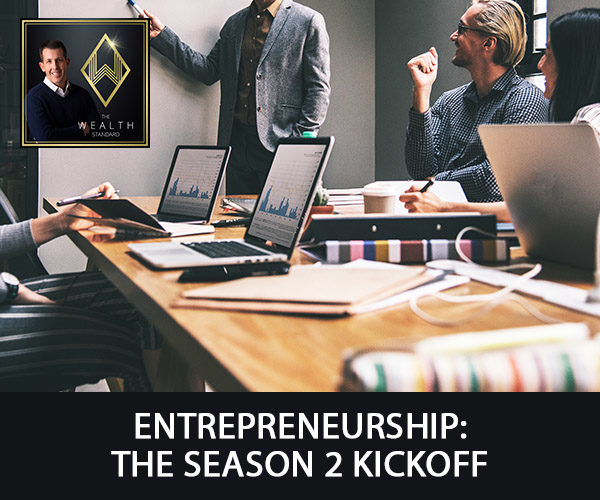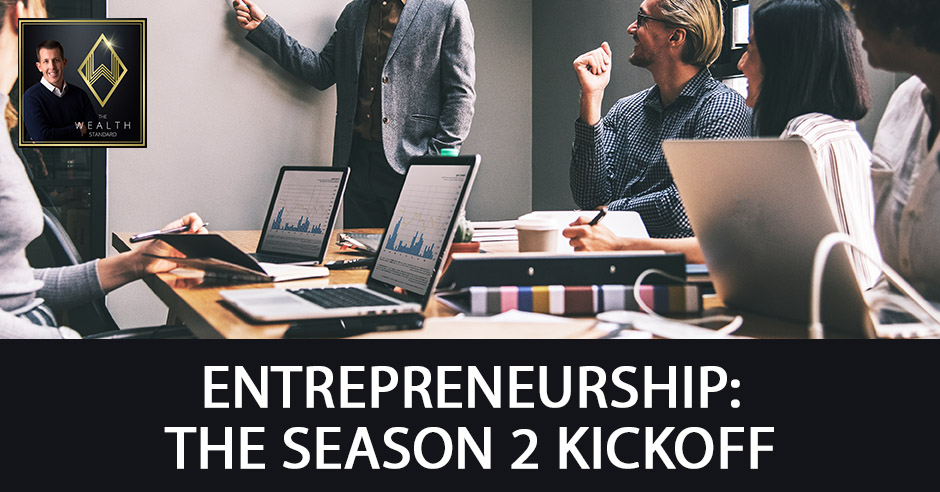Why Certain Societies Succeed And Others Fail with Dr. Richard Rahn
Podcast: Play in new window | Download
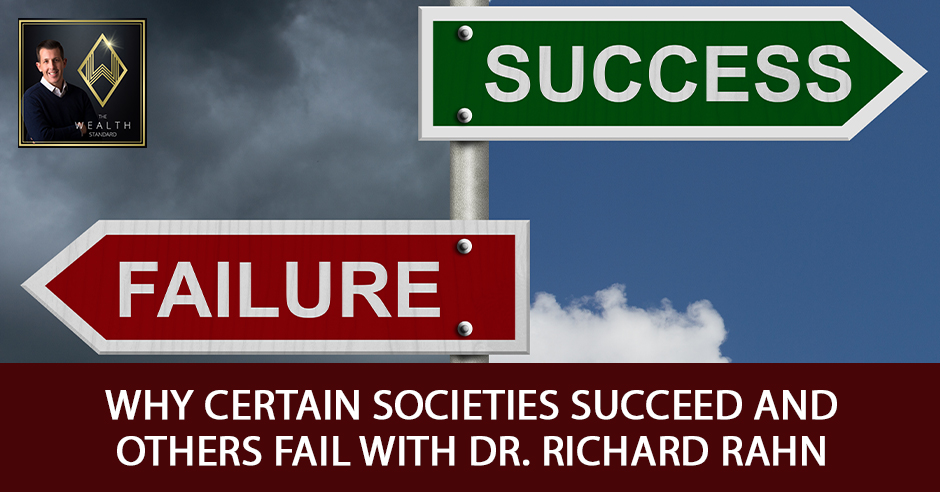
Why do certain societies succeed and why do others fail? Former Economic Advisor to President George W. Bush and currently the Chairman of the Institute for Global Economic Growth Dr. Richard Rahn sheds some light on this question as he shares his perspectives on successful and unsuccessful environments. As an entrepreneur, he lends his understanding of how businesses and people affect economies. He talks about how only a few understand the importance of respecting structures which led to the stagnant growth of their entrepreneurial pursuits.
—
Watch the episode here:
Listen to the podcast here:
Why Certain Societies Succeed And Others Fail with Dr. Richard Rahn
Thank you for tuning in to this episode where we are discussing the theme of entrepreneurship. I hope you have enjoyed and learned a lot from the number of guests that we’ve had this season talking on a variety of topics. I definitely have learned a lot and this is no exception. This is an individual that when I saw him scheduled as a guest, I was excited. It’s someone that I have followed for quite some time and I believe you are going to learn a lot from him. I’m going to introduce him first then talk about what I wanted to get out of the interview, what I was trying to learn from him and I’m hoping that you also are going to learn the same thing or potentially something different.
My guest’s name is Dr. Richard Rahn. He is currently the Chairman of the Institute for Global Economic Growth and is the former Economic Advisor to President George W. Bush and a Vice President and Chief Economist of the United States Chamber of Commerce during the Reagan administration. He’s also a former senior fellow at the Cato Institute and he is consulting and writing for the Washington Times. I met Dr. Rahn several years ago in the country of Belize. I was down there visiting a real estate development of some strategic partners and he happened to be down there as well advising the Belizean government. The group I was with was able to coordinate a dinner with Dr. Rahn.
I still think about that dinner and some of the things that were discussed in relation to Dr. Rahn’s involvement, not just in what Belize was doing, but also a lot of other countries especially in the former Soviet Union, helping to consult with establishing the infrastructure for those countries to thrive. I didn’t know what I didn’t know and back then, that conversation sparked some ideas in my mind and I’ve thought about him and developed more and more respect and admiration for what he has done with his career.
He’s consulted with numerous governments and has truly made a difference. That’s what we get into. The reason why I wanted to bring him on and I’m hoping that you all gain from this is understanding this role of an entrepreneur and the nature of the structure in which they operate. I’ve come to realize that there is these entrepreneurial instinct in most human beings or maybe all human beings. I look at how vital the environment is. He goes into what I would say the hierarchy of the structure of economies, the structure of societies in order for the entrepreneur to thrive. If not, they’re going to leave and the growth of these specific economies or societies will be stifled without the structure.
The reason why I wanted to have him talk about certain things was I believe that there isn’t necessarily a respect for the structure, especially the United States. Very few people have experienced the other side of the spectrum or the lack of a structure in which their entrepreneurial pursuits could take root, take hold and grow. I’d say now, in our day and age, you’ll find that there is a lot of divisiveness with regards to political stances and perspective. This divisiveness, I believe, is creating camps and people are joining camps or aligning with camps without understanding the fundamental reasons behind certain stances on economy.
It’s more that this person believes this way, therefore, I’m not going to give any regard to the structure in which they believe or what they are advocating as the right political or economic environment because they had this name, wear this hat or wear this label. I’m going to discount them completely. I think that’s where we are as American society is we’ve joined these camps more off of emotion than off of reason and logic. I look at going forward and how amazingly entrepreneurial the United States is.
Even though you have an idea of the tax system, if you don't have the rule of law, it still won't work. Share on XI would say for those of you reading who are US entrepreneurs is to be able to have an understanding of all sides of the spectrum when it comes to the appropriate structure of the economic environment, the political environment and the monetary environment. That we can defend based on principle instead of defending based on rhetoric and talking points. That’s where I believe most people are at now. I look at this conversation as I’m someone who has experienced the pros, the successes of certain structured economies and societies as well as the failures.
I think that within the failure side of things, you learn a lot about what works and what doesn’t. I know we didn’t have a ton of time, but as I researched this interview, watched videos and read articles, especially in the Washington Times where he talks almost every week about these topics. I gained the admiration for how he looks at things and what he’s saying. I think you are going to learn a lot from the show but also learn a lot if you follow Richard and what he is up to. If you’re reading for the first time, we did several months on the theme of entrepreneurship. Previous to that, we did a few months on capitalism.
In 2018, we did seasons on the idea of life, liberty and property as it pertains to one of the more famous quotes and points of John Locke who was a British philosopher. If you like what you’re reading now, definitely go back and read those. We’d love your feedback on the show. If you want to give us some good reviews on iTunes, it would definitely help and if you share the episode with your friends and family would be amazing. You are awesome. You’ve been so supportive and grateful for that support. Let’s go ahead and get to the interview with Dr. Richard Rahn.
—
Richard, it’s awesome to have a have you on. It’s something I’ve been looking forward to for quite some time now. We met a little more than a couple of years ago. I’ve been intrigued with the work that you’ve done and I’ve been looking forward to asking you some of these questions. Welcome to the show.
Thank you very much. It’s great to see you and be with you.
The thing that has piqued my interest in regard to some conversations we’ve had had in the past is in relation to the perspective you have on successful and unsuccessful economic environments. Why certain societies succeed and why certain societies fail. Maybe start out by telling the audience or teaching the audience some of the universal reasons for these outcomes.
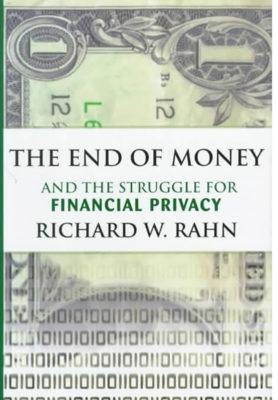
The End of Money and the Struggle for Financial Privacy
It’s interesting when you mentioned universal reasons because it is indeed true that if you’re looking at six successful countries, you’ll find them over the globe and you find countries that are failures over the globe. It has nothing to do with nationality or planet or where they’re located on the globe. It has all to do with fundamental policy. We have great success stories, not only the US but Switzerland, Singapore and even Ireland now and places that had very high incomes. Venezuela now is the poster child for a country that is rich. It has the world’s largest oil resources and now is the bottom of economic freedom and incomes have been rapidly dropping for a number of years. The place is impoverished because of policy. When you start off, the key policy is the rule of law and without the rule of law, nothing else works. A lot of us like to talk about taxes and regulations and monetary policy.
Even though you have an idea of the tax system, if you don’t have the rule of law, it still won’t work. Fortunately, the British, when they built the British Empire, there was a lot of downsizing there, but one thing they left around the world was the British legal system, the common law system. Many places it took and worked very well. Each country has adapted it somewhat to its own needs. In other places, it got corrupted and it didn’t work. You and I were in Belize a number of years ago. It’s a prime example of a British territory that was given the rule of law, but they managed to corrupt it and destroy it. Once you have the rule of law, you’ve got to have a competent and honest judiciary to carry it out.
The importance of having honest and competent judges can’t be understated. There is then free markets and socialism doesn’t play and work and we can do mini shows on my why socialism doesn’t work. The importance of having free markets, free trade and taxes that are low on work, saving and investment in capital and labor and underlying economics goings-on. Reasonable regulations in many places include those who are overly regulated. There are a lot of unreasonable regulations. I noticed that a number of the Democratic candidates want to take away my plastic straws and I thought I might even do an article on this that I don’t like drinking through paper straws because it dissolves in the mouth. Some places have these aluminum straws, which are terrible because they’re unsanitary, they break your teeth and other problems.
These stupid little regulations are totally unneeded. Having sound money and by that we need money which is a store of value. The dollar has been imperfect, but it’s been far better than the other world currencies. Get off the gold standard and for all intents and purposes, valor is the world’s standard. Those are the fundamentals. If you don’t follow them, you’re probably going to be poor. If you do follow them, you’re likely to be rich. I’m talking about countries, but it’s also true in people’s private lives. People that play by the rules or honest and work hard tend to do better than those who are trying to find the shortcuts, it usually it doesn’t work out too well.
In my experience, many people don’t have the perspective that you do when it comes to other countries and what they faced as the consequences of not following this hierarchy of universal infrastructure. That’s where you look at a lot of the younger entrepreneurs that have built successful businesses and have become wealthy themselves discount sometimes that infrastructure. Oftentimes, they point to the more socialistic type of structures to essentially help those they consider less fortunate. Do you consider that a slippery slope and why?
It’s naive. A number of countries tried it. People often talk about Sweden being socialist. Sweden’s not a socialist. It had been for about a 30-year-period. Sweden had been very capitalistic from about 1870 until around the 1950s and ‘60s. The social go-getters took over and they nationalized a number of things, but they built a welfare state. They didn’t go overboard with the nationalization. They didn’t go as far as Britain and before Margaret Thatcher, but it didn’t work. Sweden went from the fourth wealthiest in the world to something like seventeenth. The Swedes spent many years ago began to reverse course as Sweden is now much more capitalistic. They still have a big social safety net but when you’re there, everything it was privately owned. They have begun the rule of law. They are quite entrepreneurial.
The dollar has been imperfect, but it's been far better than the other world currencies. Share on XYou can start your own business without problems. They’ve got this social welfare state, which works somewhat in small homogeneous economies. In places like Finland, which is very homogeneous, it works somewhat there. There are still the imperfections, but it doesn’t work in large heterogeneous companies. People always think of this wonderful work, everybody gets along and shares. In reality, it’s not what people do. I think it’s interesting a lot of the very wealthy people in the US who are left-leaning and talk about this thing are also the least generous when it comes to private giving. There was a wonderful book years ago by Arthur Brooks, Who Really Cares, and it turned out that there were much greater donations to greater causes from a lot of what are considered some of the tough guy capitalists than the social liberals.
Do you know that people who you view as the hard-headed businessman give enormous amounts of money to hospitals and all kinds of things and that’s a good way. Particularly in this society, when you get billions of dollars, there’s this sort of pact among a number of the billionaires to give away all the money. How much can any one person spend on themselves? Not that much. Bill Gates stresses the same way we do. Have you ever seen him in a suit? Once in a while. They might have a bit nicer car. The one thing they have is a private jet. This is one thing I like, but for the most part anybody who’s successful they can’t eat more and there’s a maximum size of house you want. They have this test of how far should the bathroom be from the master bed. Because some of these houses were being built that the bathrooms were such as distance from the bedroom that you had quite a trek.
I noticed this has now shrunk back down to a reasonable thing. Most people, particularly as they get older and have to get up in the night or whatever. Kids don’t want to walk 200 feet to the bathroom. The point is there’s an optimum in all kinds of things. When a society becomes sufficiently wealthy, there’s no sense of overdoing anymore. Look at Steve jobs with a t-shirt. The billionaires in Silicon Valley wear t-shirts. A few of them have massive houses, but a lot of them don’t. I live in a fairly affluent community in Northern Virginia and we have a neighborhood pub. I never know if the guy sitting at the next table is a billionaire or runs the neighborhood lawn service. That’s wonderful about the US because it doesn’t matter. We’re all there together and that’s true equality when we all have the quality of opportunity, but not necessarily as a result.
There’s a saying I heard a number of years ago that the secret to living is giving. I was intrigued when a local billionaire to where I’m at passed away a few years ago, Jon Huntsman. He had a chemical company and he was very entrepreneurial. He founded one of the first renowned cancer hospitals and that’s what he said in his biographies. He talked about how he became wealthy because he just learned the satisfaction of giving at a very early time. He realized that the more he grew, the more he could contribute and give. I think that’s something that is very interesting when you look at the Bill & Melinda Gates Foundation and what they’ve been able to accomplish.
I had a bit of a partner and he’s also the senior partner, a guy named Bob Krieble years ago. Bob had invented superglue by the Loctite Corporation. He was a great entrepreneur, but he spent most of the time giving away his money. He used to drive a little Ford Escort around Washington and he’d be up in the CDs and he’d scare me to death the way you drove. I said to him one day, “Bob, why don’t you get yourself a bit bigger car? You can afford it. He said, “The more money I spend on myself, the less money I have to give away.” That was his attitude. I thought, “That’s such an American attitude.”
Look at now where you have Bill Gates is a perfect example where he’s still involved to an extent, but for the most part he’s giving. The impact he’s made on the entire world based on his desire to grow. His vision of having a computer at every home has blessed the world and benefited the world. That’s where I look at. It’s interesting where you have this left-leaning entrepreneurial crowd who in essence wants to delegate that responsibility to government and to distribute wealth through taxation and to take care of those that are less fortunate. I think that’s a very flawed philosophy because the government hasn’t created much. If anything, it’s the entrepreneur. It’s the human being and their ability whether it’s creating things in industry or industries themselves changed the way in which people live. Because in order for them to be wealthy, they have to make lives better for a lot of other people first.

Why Certain Societies Succeed: When a society becomes sufficiently wealthy, there’s no sense of overdoing anymore.
In fact, I could argue that Steve Jobs did more to increase the rural standard of living than any human beforehand. With the iPhone and iPad, just of the Apple version, there is like 1.5 billion out there plus all these other versions. For sure anybody on the planet now has it. If you look at the places in Africa, but they all have them and they now do their banking. You’d have a smartphone and you’d have all the world’s knowledge in your hand and things like medical care. Much has stuck you can outsell treatment back. We know that when a typical American comes down with something, the first thing they do is go to WebMD to see how serious it is or whether they could self-treat or they have to go to the doctor.
We look at all the apps that take care of it, things like cameras. I’ve always traveled around the world to go deal with the work I’ve done and I used to take a camera with me, a Rolodex and all these kinds of things. Now, I have everything in my hand all the time. Even poor people around the world have this. That has been enormously empowering and greatly reduced mortality rates and increase this stock of happiness for people. People now know if they have a shortage of something and they know what the world markets are and where surpluses and things are or where shortages are. The markets can arbitrage that over the globe instantaneously. That’s a wonderful innovation and people haven’t thought through of it. It’s one reason we have this apparent worldwide deflation is that the improvements in technology had been so fast that they’ve in certain ways overwhelmed the ability of the government to inflate the currency, which is bizarre.
Interestingly enough, that’s where I wanted to go next. Maybe not specifically to currency, but to maybe the belief systems that you are seeing in the US and American society that may not be in line with what we’ve been talking about. I believe these universal truths are evident in a lot of different respects, a lot of different successful societies. In our day and age, I see a lot of fragileness associated with the markets with interest rates. It starts with the American Society’s belief system or perspective when it comes to how things should operate. What would you say are maybe some of those fragile points that you see that American society is adopting as their belief system?
The biggest problem and you alluded to it is that people don’t understand how the system works and you got a lot of these young entrepreneurs who became rich. They don’t understand why they became rich and how they could do that in the US, but they couldn’t do it in Venezuela. They have the same person. It’s the same genetic structure. This can come from a good family in both countries and in one place, you’re stuck. You have to get out. There was no way to do anything. Then they can come to the US and do most everything. Many years ago, I was very much involved in the economic transition in Eastern Europe and the former Soviet Union. What struck me is when I started working in these countries are all these very smart young entrepreneurial people, but they couldn’t do anything in their own country. They had to get out and then came to the US or Europe or other places, but particularly come into the US.
Particularly, I have worked in Bulgaria and Bulgaria now is a great free-market country. I noticed that the index of economic freedom it’s in the top quintile now. Years ago, it wasn’t. For a Bulgarian to succeed, it was much easier to leave the country. You had all these young Bulgarians who would come to the US and get an education. I used to say, “Why don’t you go back to Bulgaria and help the country?” They say, “It’s hopeless. I’ll stay here.” A lot of them became quite wealthy, some of them who worked for me. I realized that they made the right decision and then Bulgaria changed. They’re the first ones to put a 10% flat tax in and they have a lot of crushes, but they’ve gotten rid of much of it. It is a remarkably different place now because they started adopting the rules that worked in every place. We take Chile. Chile I think is now the 30th freest country in the world. Many years ago, it was a Marxist dictatorship.
It was horrible. It was a communist country. It hadn’t been that long that a guy named Allende who was in his time a dictator, he was overthrown. It took them a number of years to get a democratic government, but they started the economic reform quite early. Now you go to Chile, San Diego and it reminds me so much the way California used to be before California went downhill. It’s beautiful. It’s got the same climate. San Diego is like Southern California. The mountains come up in the sea and beautiful beaches and it’s gorgeous. The vineyards grow almost everything. You’ll see that change for a country was a poor Marxist dictatorship and now is the wealthiest country in South America. It’s the same people and the only thing that’s different is the systems.
True equality is when we all have the equality of opportunity. Share on XWhat I find fascinating is polarity oftentimes gives you a different perspective when you’ve experienced what it’s like to have a dictatorship. I think the value that’s placed on freedom is so much greater. I look at how I characterize the perspective of the United States is we don’t have polarity. We’ve had freedom, we’ve had success and we’ve had an infrastructure for so long that people have discounted its nature. Subsequently now, our questioning is nature. Do you see the same thing or maybe something different?
I think you put your finger on it. We look at what’s happening in Hong Kong. The people who are the citizens of Hong Kong, most of them are the descendants of people who came over in the late ‘40s or 1950s from China. If they didn’t directly experience Communism, their parents or grandparents did. They know what it’s all about. You don’t have to explain it to them and you look at how they’re risking everything. They are unarmed and every weekend and every night they go out there and are protesting what may seem like fairly minor issues, but they’re not because they understand that once they start to lose some of these things, there is a slippery slope. They’ll end up looking like China rather than Hong Kong. You can see that they don’t want to go back and I worry about the situation, but the facts that these people have this courage without any weapons or anything. They go out there and confront the authorities night after night and demand to keep the freedoms that were given to them on the basic agreement between the British and Chinese 50-year agreement.
The fighting comes from that understanding of what it’s like to have the opposite and their neighbor is China. If you look at with regards to one of those universal fundamentals, I know that you have some experience here which is a currency, a sound monetary system. I look at what’s going on in our country and we’ve benefited from so much yet at the same time, there’s a great cause for concern with the deficit spending with the future obligations of Medicare and Social Security and the way in which that is operating. You had some communications with a lot of the Silicon Valley folks that were looking at internal payment systems associated with cryptocurrency or blockchain and figuring out new ways in order to make exchanges. It would not only create more efficiency with exchange but would ultimately reduce the central influence and power around that type of exchange. Do you mind speaking to that?
Central Banks are relatively recent phenomena. They are going to be a short-lived phenomenon. From about 1870 to 1914, the world was on the gold standard, which is the great error of monetary stability around the world because all the major countries were on the gold standard. Nobody could control the price of money, there are supply and demand. It worked extremely well. There were no exchange fees between countries because an analysis of gold in London was the same as New York or Tokyo or wherever. That worked well and the reason it fell apart is that when they went in World War I, the countries needed to borrow a whole lot to engage in war. None of the gold sends you’ve limited to how much should you borrow and we should have constrained war. In fact, it destroyed the money engaged in the war.
We look now and we have these they call fiat currencies. The US dollar has backing and the US dollar is the world’s currency. The backing the US dollar has is the ability of the government to tax, take real resources. Take things that have real value that we all own. Take them to the point of a gun and seize them. They try to manage the value of the dollar. We see they can do this less and less well. The open market operations. Some of your readers learned about some of the tools and most of these tools are less potent than they used to be and are hardly used anymore. I should back up, I was a great fan of FA Hayek, the great Nobel Prize economist-philosopher. In 1976, he wrote a book called Denationalization of Money.
I was a young economist at the time and I was fascinated by the book and I was an advisor to one of my exchanges at the time in Austin. I thought, “He’s nailed it, but mechanically it’s hard to do.” This would be before the modern computer digital age. I wrote a lot about it and played with it to how we could do it. In 1998, I wrote a book called The End of Money looking at digital money and so forth. Eventually, several years ago, the blockchain came along with Bitcoin in the early cyber purchases. The question is where does all of this lead? To start with the basic goal would be to have a worldwide monetary standard which would make trade and investment very easy around the world with these big fluctuating exchange rates.

Why Certain Societies Succeed: Central Banks are relatively recent phenomena, and they are going to be a short-lived phenomenon.
Think if you are a German chemical manufacturer. The price of the euro that the Germans use goes up and down considerably against the dollar. Do you put your plants in Louisiana? Do you put it in Hamburg, Germany? Do you put it someplace else? If you make a mistake because you’ve misgauged what the exchange rate would be and nobody knows this for certain. This can be extremely costly too. You can have windfalls or often great penalties. If you had a constant currency throughout the world that everybody used, that problem goes away. A lot of these investment decisions, which are almost difficult to make, disappear and you’ll put your money where it makes the most sense given raw materials in markets and so forth. That is a great promise of the cryptocurrency digital age.
You have then a debate of, “What should be high-end with cryptocurrency?” With Bitcoin, there’s nothing better than a computer algorithm. They kept a scarcity by the system they have and you have to mine the new ones that have increased costs. They have limits. It’s $21 million. There’s nothing real there. Someday somebody will figure out how to hack it. Nobody has to date, but things can go wrong or you have a meltdown of the rural electronic system for some period of time. It won’t be permanent and you see these science-fiction things and not all of them are still science fiction of the electrical grids going down and so forth. If a currency has nothing more than a computer algorithm behind it, you’ll have many more problems that I think are necessary. A lot of people recognize this problem. They’re trying to do cryptocurrencies, but have real backing like with gold or silver, the traditional precious metals.
These are heavily-regulated and I’ve argued that you can use almost any standard commodity, things in trade and organized futures market around the world. We had the standards for a long while. I have a few others who had created a company which we are willing to an aluminum-backed cryptocurrency. That may sound ridiculous because aluminum is inexpensive. It is found everywhere, but it has a number of great advantages. It’s never going to be worth zero. We’re not talking about carrying around aluminum foil in your pocket. The goal is an important flag to carry around. Digitally, she would have stored at any place and still trade and still use it. I think this is the way we’re moving and I had been putting my money and time where my mouth is on the whole thing. It’ll be interesting to see how this works out. When you’ve got a thousand different experiments around the world this time or at any given time.
Richard, one of the conversations we had when we were in Belize was around an idea that you had regarding how to essentially create some sort of ETF or fund around the natural resources of Belize and what that could potentially do to back their currency. It sounds in a similar way what you’re talking about, having something that backs a cryptocurrency.
What I was talking about there was a standard currency board. I used to be on the board when I came out on monetary authority and I’ve got a currency board there where the Cayman dollars fixed the US dollar. Those of us who are on the board, we managed that. It’s easy to have a fixed exchange rate. Years beforehand, I had done some work in Estonia and they had a number of natural resources. The Estonians were trying to figure out how to establish new money and they had some gold in the Bank of England and in New York. They had a lot of timber, oil, shale and so forth.
They were able to put together a currency board which gave total backing for currency. It wasn’t a cryptocurrency, it’s was normal currency at the time. The currency boards I have been, a lot of them is set up in Eastern Europe, the former economist countries. They worked very well for mid-sized countries because they get monetary production outside the political process. Bulgaria has got one and it’s affixed in euro. Bulgaria can inflate as well and have problems. Bulgaria has a very good fiscal policy. Before they had the currency board, they went through a couple of episodes of hyperinflation. Back when I shared the transition project back in 1990, I argued for the courtesy board then they had to go through these bouts of inflation. I got a call one day and said, “Richard, you knew that idea you had for a currency board.” The paper was ready. That is in 1997 and it has worked well since.
If a currency has nothing more than a computer algorithm behind it, you'll have many more problems that are unnecessary. Share on XThat’s the polarity idea. Where ideas and solutions could be valid but if that’s the only thing that a person sees, then it may not be relevant at the time. When they go through some sort of a crisis and experience not having it or something that could have prevented it, that’s when they value it more. That’s I would say one of the last things we can talk about before the end of this fascinating conversation. Where do we stand with the fragile nature of potentially in America and what we experience? I know we have a lot of strength in so many different areas, but do you look at where we’re at as a society and identify one part of it or a couple of parts of it that are more fragile than others.
Yes. The most fragile part is this notion of getting stuff for free and the idea that you can have free medical care and free pensions and so forth. These don’t have to be actuarially sound. That always ends up a disaster. Every place in the world is a separate tribe. It’s like these people, Madison did these debates. It’s like, “People have read no history.” It’s quite astounding to me that they think they can do this. There are some crazy things as Bernie Sanders comes out. It’s like the Soviet Union and all of the other places never existed or maybe in his mind may have worked perfectly.
For those of us who’ve been there, “No, that’s true.” It impoverished everybody. We look at Social Security. We have to make adjustments to the system as we age as a society. When Social Security was first developed in the 1930s, there were about twelve working in Americas for each person’s Social Security. Now we have about three. That at racial continued to decline as people start living to commonplace to 100, 110, 120 or whatever. We can’t have people retire for half their lives and have a good retirement income.
Somebody has to be doing the work. He said, “We’ll increase the taxes,” but the more you increase taxes, that discourages work. You get out of yourself on these treadmills and it’s a formula for disaster. We’re seeing it play out in places in Europe and Japan and other places and in worse shape than the US. In the last few years, we saw it play out in Greece and the average Greek has a per capita income of about 30% less than they did a few years ago. That’s a huge drop in the standard of living and the idea is that we’re going to spend money if they weren’t earning and you can only do that up to a point. At some point, people say, “I’m not going to loan to you anymore.” When that happens, the game is over and that’s what I fear in this country. On the socialized health systems, we’ve seen plenty of those around the world and you tend to get inferior care, queuing and then you always end up with two sets.
I look at it in all the places. There is a medical system for people in welfare willing to pay for their own. They have decent hospitals and state of the art and then there’s the medical care for everybody else’s free. It’s like the VA system. Do you want to go there? One of the great changes the Trump administration made it is now the VA have a choice to either to the VA or go to your own doctor. They call the VA and they say, “We can’t see you for a few months. You can go to your own doctor.” They send the bill over to the VA.

Why Certain Societies Succeed: We have to make adjustments to the system as we age as a society.
I refer to what’s going on sometimes as psychological warfare because it seems that rational thinking has been thrown out the door and its demagoguery and rhetoric that has taken over. It’s the hot buttons. It’s the trigger buttons that ultimately get people to react emotionally. When that exists, you throw rationale at the window because history has shown what some of the things that are being proposed have done to societies. Yet history and reason have nothing to do with the conversation anymore it seems.
I thank you for giving me an opportunity to speak to your audience.
You’re still active and you are still writing. Why don’t you tell people about what you’re doing with the Washington Times and other ways in which people can follow you and keep up to speed with what you’re talking about?
I do a column which is published each week in the Washington Times. You can find on the Washington Times website or the InstituteForGlobalEconomicGrowth.orgI. I think you’ve got all the information on that and it appears in a lot of other places. If you Google my name, you’ll find me on Twitter and Facebook. You’ll find 2,000 columns by me and my ideas on the week.
Richard, it has been a pleasure. Thank you so much for your time. It’s been an awesome conversation. I appreciate it. I’ve learned a lot.
Thank you.
Important Links:
- United States Chamber of Commerce
- Cato Institute
- iTunes – The Wealth Standard
- Who Really Cares
- Denationalization of Money
- The End of Money
- http://www.iGEG.org/
- https://www.ImprobableSuccessProductions.com
- https://www.WashingtonTimes.com/staff/richard-w-rahn/
- https://www.Facebook.com/richard.rahn.10
- https://Twitter.com/richardwrahn?lang=en
About Richard W. Rahn
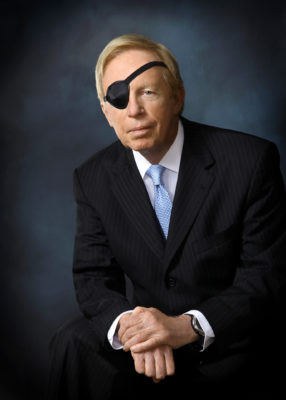 Richard W. Rahn is an economist, syndicated columnist, and entrepreneur. Currently, he is Chairman of Improbable Success Productions, the Institute for Global Economic Growth, and Metal Convertibility LLC. He writes a syndicated weekly economic column which is published in The Washington Times, Real Clear Markets and many other places, and serves on the editorial board of the Cayman Financial Review.
Richard W. Rahn is an economist, syndicated columnist, and entrepreneur. Currently, he is Chairman of Improbable Success Productions, the Institute for Global Economic Growth, and Metal Convertibility LLC. He writes a syndicated weekly economic column which is published in The Washington Times, Real Clear Markets and many other places, and serves on the editorial board of the Cayman Financial Review.
Previously, he served: as the Vice President and Chief Economist of the Chamber of Commerce of the United States; as a representative of the United States Information Agency in a number of countries; as the Executive Director of the American Council for Capital Formation; as a member of the Board of Directors of the Cayman Islands Monetary Authority; as the U.S. co-chairman of the Bulgarian Economic Growth and Transition Project (1990-91); as a member of the Quadrennial Social Security Advisory Council (appointed by President Reagan in 1982); and as an economic advisor to President G.H.W. Bush (in 1988-1989). In 1990, he founded the Novecon companies, which included Novecon Financial Ltd., Novecopter, and Sterling Semiconductor (now owned by Dow Corning). He has taught in graduate schools at several universities, and for the U.S. Air Force.
He is a member of the Mont Pelerin Society and has served as a senior fellow at the Cato Institute, the Hudson Institute, and the Discovery Institute; and a visiting fellow at the Heritage Foundation. He has written more than a thousand articles for newspaper, magazines and professional journals, such as the Wall Street Journal, USA Today, Forbes, The American Spectator, The Weekly Standard, National Review, and The National Interest. As an economic commentator, he has appeared on such programs as the Today Show, Good Morning America, Kudlow and Co., Wall Street Week, the PBS Newshour and Crossfire, and was a weekly commentator for Radio America.
He has testified before the U.S. Congress on economic issues more than seventy-five times. He earned a Ph.D. from Columbia University and was awarded an honorary Doctor of Laws by Pepperdine University. In 2018, Dr. Rahn was a recipient of the annual Hayek Lifetime Achievement Award.

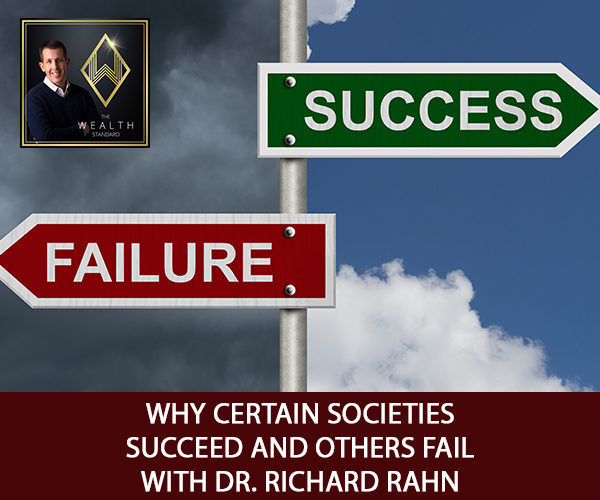
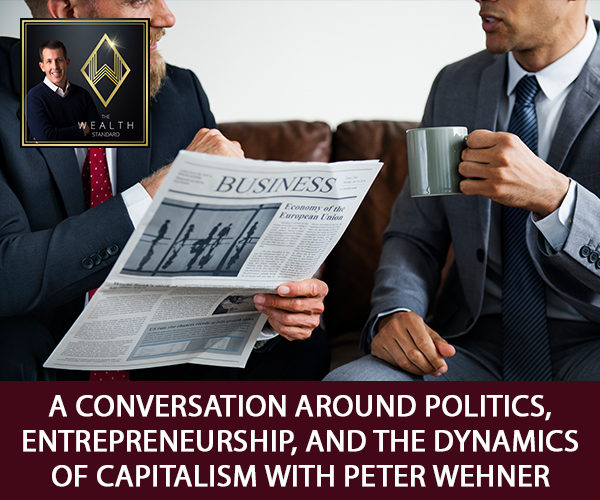
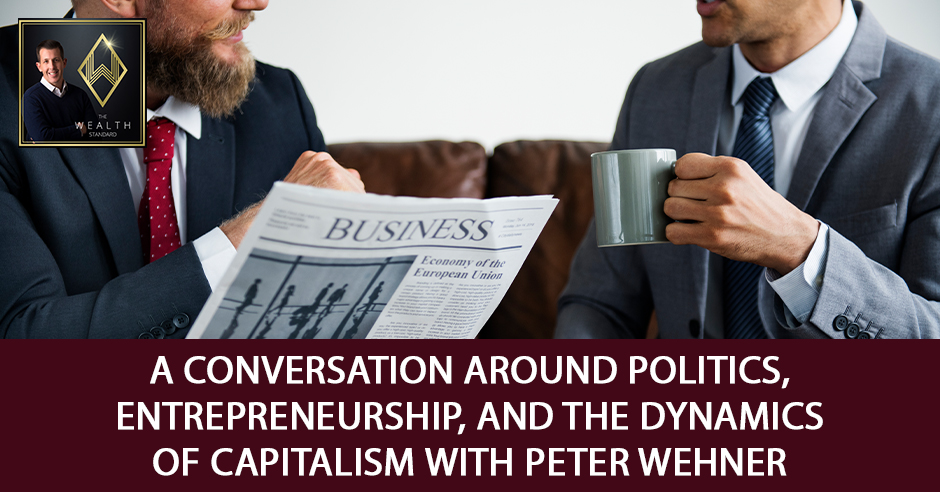



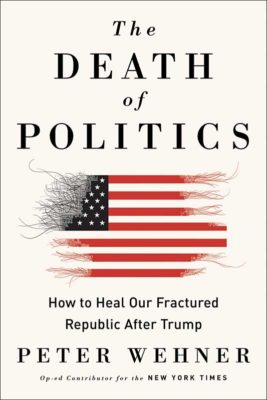
 Peter Wehner is the author of The Death of Politics. He is a New York Times contributing Op-Ed writer covering American politics and conservative thought and a popular media commentator on politics.
Peter Wehner is the author of The Death of Politics. He is a New York Times contributing Op-Ed writer covering American politics and conservative thought and a popular media commentator on politics.


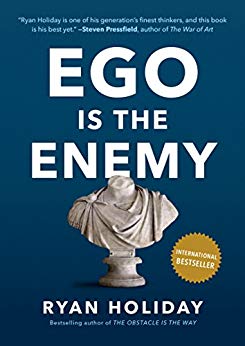

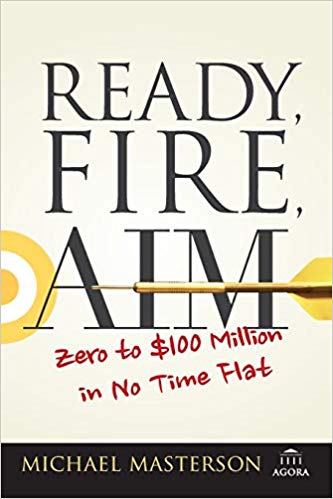

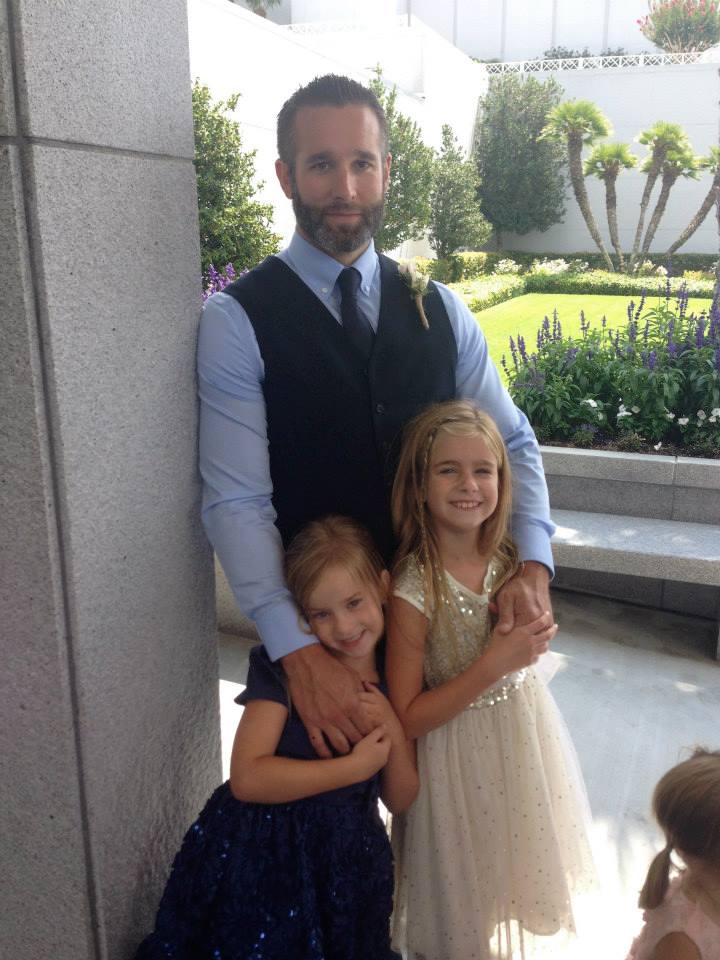 Brandon Bliss is President and CEO of Orbit Medical, a large home medical equipment company. He started with the company as an entry level sales representative and was made partner after only two years. He has been the President and CEO since 2011. Brandon has extensive experience in start-ups, business management, project management, employee development, recruiting, sales, and operations. In his current role, he works with every department of the company as they continue to expand and open new Orbit Medical offices across the country.
Brandon Bliss is President and CEO of Orbit Medical, a large home medical equipment company. He started with the company as an entry level sales representative and was made partner after only two years. He has been the President and CEO since 2011. Brandon has extensive experience in start-ups, business management, project management, employee development, recruiting, sales, and operations. In his current role, he works with every department of the company as they continue to expand and open new Orbit Medical offices across the country.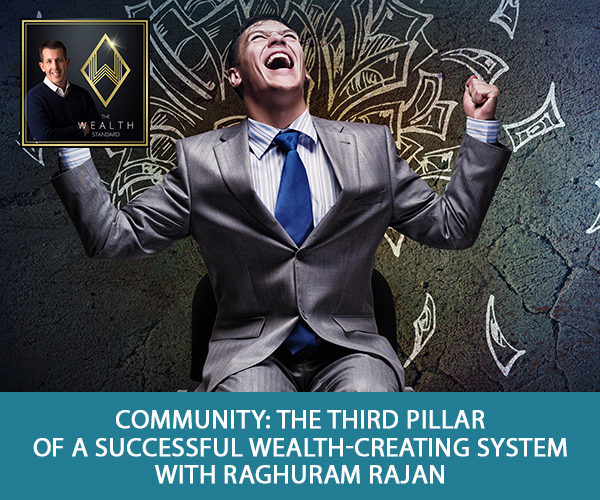
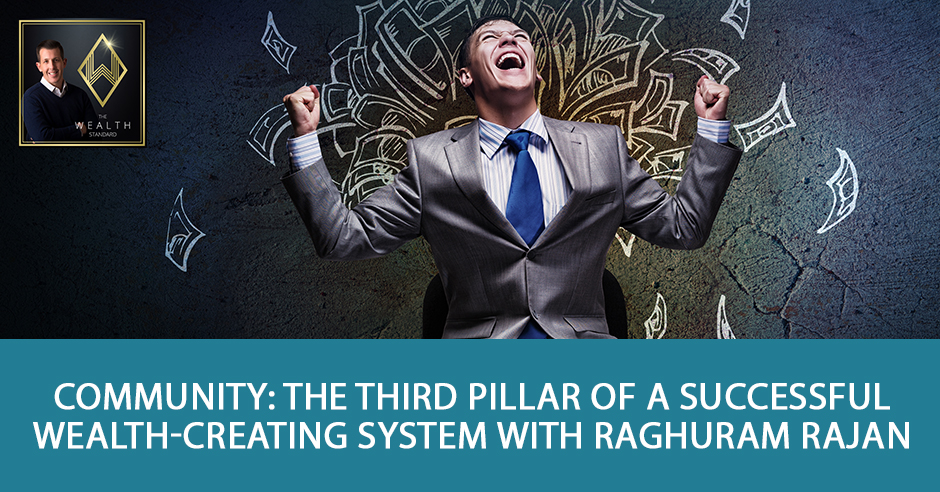
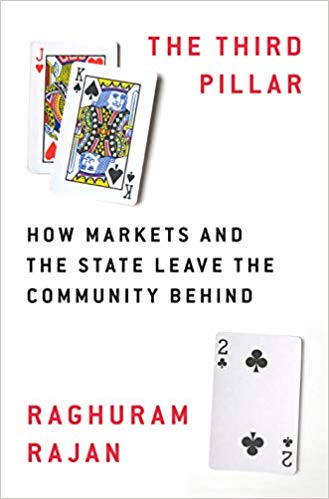

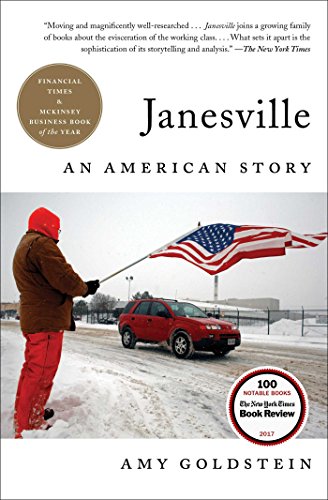

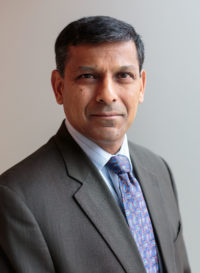 Raghuram Rajan is the Katherine Dusak Miller Distinguished Service Professor of Finance at the Booth School of Business at the University of Chicago. He was the Governor of the Reserve Bank of India between 2013 and 2016, and also served as Vice-Chairman of the Board of the Bank for International Settlements between 2015 and 2016. Dr. Rajan was the Chief Economist and Director of Research at the International Monetary Fund from 2003 to 2006.
Raghuram Rajan is the Katherine Dusak Miller Distinguished Service Professor of Finance at the Booth School of Business at the University of Chicago. He was the Governor of the Reserve Bank of India between 2013 and 2016, and also served as Vice-Chairman of the Board of the Bank for International Settlements between 2015 and 2016. Dr. Rajan was the Chief Economist and Director of Research at the International Monetary Fund from 2003 to 2006.